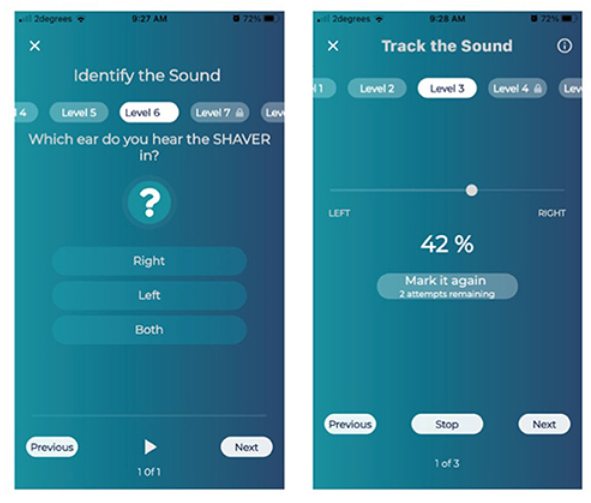Electric pain treatment, why you need three Covid tests, no one knows diabetes meds, and more
13 Aug 2022
Posted by Andrew Kantor
Full of sound and fury, signifying nothing
Imagine spending millions on TV ads that annoy the heck out of people, only to find that no one remembers your name? Welcome to the world of diabetes-drug marketing.
A new survey found that despite huge spending by companies like Eli Lilly and Novo Nordisk, “patients struggle to remember the drugs’ names.”
Jardiance? (shrug)
Trulicity? (shrug)
Januvia? (shrug)
How about … metformin? Yep, that one they know.
Fundamentally, said one researcher, “they won’t care whether they are on, say, Jardiance or AstraZeneca’s Farxiga, because those names have little meaning for them.”
Amusingly, a new paper just came out of Johns Hopkins claiming that direct-to-consumer ads actually work. Or as they put it:
Brief exposure to prescription drug advertisements has a large and positive association with medication-related demand intentions.
New kids’ flu med
Baloxavir Marboxil — it’s not just the winning play in the 2019 Lithuanian Scrabble Championship. It’s also the latest drug approved by the FDA for treating kids (5 to 11.99 years old) who have the flu.
In fact, it’s the “first single-dose oral medication approved for treating flu in children of this age group.” Just be sure they’ve had symptoms for fewer than 48 hours.
Sound and electricity vs pain
Who needs drugs to treat pain when you have sound? And electricity? Not guinea pigs, that’s who.
Using a combination of pulses of “broadband sound” (tones ranging from 625 Hz and 40 kHz) and a bit of electrical stimulation, University of Minnesota researchers …
… found that the combination of the two activated neurons in the brain’s somatosensory cortex, which is responsible for touch and pain sensations throughout the body.
They used needles to send the current, but they say it could be done non-invasively with one of those TENS* units you might even sell in your pharmacy.
* Transcutaneous electrical nerve stimulation, in case you’re unfamiliar
I didn’t know they were still selling it
“Johnson & Johnson plans to halt talc sales worldwide”.
Can D help depression?
The PR person says: “Vitamin D supplementation seems to alleviate depressive symptoms in adults”.
The gist is: A meta-analysis out of Finland found “that vitamin D supplementation may alleviate depressive symptoms in adults with depression.”
But the study’s lead author says: “[T]he certainty of evidence remains low.” Yet, he adds, it’s worth doing a proper study:
“These findings will encourage new, high-level clinical trials in patients with depression in order to shed more light on the possible role of vitamin D supplementation in the treatment of depression.”
Lest we forget
The Covid-19 pandemic isn’t over. The latest CDC data shows cases dropping … but still 100,000 Americans are testing positive per day, including 20 Georgians. And that’s just the ones we know about.
There are more than 40,000 Americans currently hospitalized with Covid (1,800 in Georgia), and 300 to 400 die every day. (That’s lower than the peak, but higher than this time last year.)
More than a million* Americans have died since the pandemic began — including almost 38,000 Georgians.
* A bare minimum of 1,030,777, but certainly more.
Three is a magic number
If you think you’ve been exposed to Covid-19 and you have symptoms, one negative result from a home test isn’t enough, says the FDA. No, two isn’t enough either. The number of the counting shall be three negative tests 48 hours apart to be sure you’re not exposing others. (If you’re symptom-free but have been hanging out with someone who’s sick, then two should be enough.)
This only applies to the rapid-antigen home tests (available free via the gummit at Covid.gov/tests), not the super-accurate PCR tests that are sent to a lab.
https://www.youtube.com/watch?v=bEcjFRB-1C4
Look into my eyes (for cancer)
Biomedical engineers in California have created a prototype contact lens that can detect cancers. They can capture exosomes in a wearer’s tears and analyze them for cancers. The lenses are made with thousands of microchambers containing gold nanoparticles that [insert science magic here] and can thus detect antibodies associated with cancer.
(Essentially it’s just a simple way to analyze tears, which the team — from the Terasaki Institute for Biomedical Innovation — say are a better source of exosomes than blood, urine, or saliva.)
Tinnitus-fighting app

There’s no cure for tinnitus, but there may be an app for treatment.
Kiwi researchers have created a “digital polytherapeutic” — aka, an app, bone conduction headphones, neck pillow speaker, and an audiologist to help personalize that app. The app plays various sounds to mask the tinnitus, relax the patient, and retrain the ear, asking for feedback along the way (e.g., “Which ear do you hear the shaver in?”) to adjust the therapy.
“What this therapy does is essentially rewire the brain in a way that de-emphasises the sound of the tinnitus to a background noise that has no meaning or relevance to the listener.”


